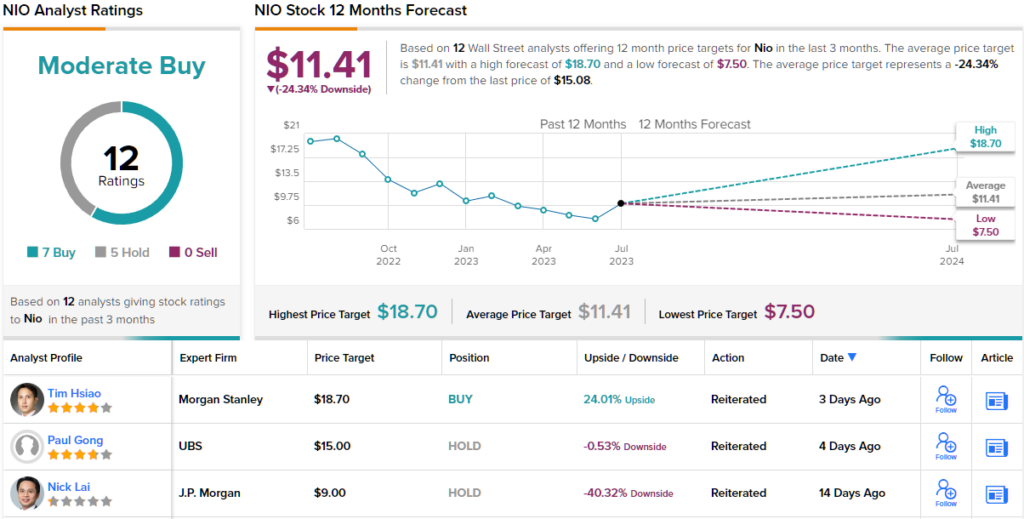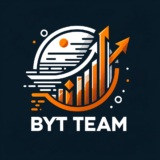The good times are back for Nio (NYSE:NIO). The shares have gained 50% over the past month, driven by a strong rebound in deliveries for July.
Specifically, Nio delivered 20,462 vehicles in the month — more than twice the number of its deliveries in July of last year — and lifted its total deliveries year to date to 75,023. The company did not reveal its revenues from or profits on these cars. However, Nio noted that more than half the EVs delivered in July were ES6 “smart electric all-round SUVs,” indicating strong customer response to a model only introduced in late May 2023.
Despite the ES6 retailing at a starting price of about $55,800, versus $52,400 for the company’s cheaper EC6 SUV, it appears that the new ES6 is outselling Nio’s older model SUVs by more than 2-to-1. Nio car buyers also seem to prefer the ES6 over the company’s cheaper sedan offerings, despite the ES6 being 21% more expensive than, for example, the company’s entry level offering, the ET5 sedan.
Taking a closer look at Nio’s competition, we find that rival Chinese EV maker Xpeng (NYSE:XPEV) reported comparatively lower July deliveries of 11,008 units, placing Nio ahead by a considerable margin. However, Li Auto (NASDAQ:LI) emerged as a strong competitor, reporting deliveries of 34,134 vehicles in the same month, outpacing Nio’s performance.
And then there’s Tesla (NASDAQ:TSLA).
For all the talk of Chinese protectionism and Chinese government efforts to nurture its domestic car industry at the expense of foreign competitors, Tesla is still leaving smaller local car companies like Nio, Xpeng, and Li Auto in the dust. While July data aren’t out yet, in June, Tesla said it brought 93,680 China-made Tesla EVs to market — a new monthly record for the company, and about 43% more than Nio, Xpeng, and Li Auto combined.
Of course, even Tesla isn’t the worst problem for start-ups like Nio, Xpeng, and Li Auto. Their real problem is Warren Buffett-backed Chinese automaker BYD. As Reuters reported last month, BYD sold a staggering 261,105 combined electric vehicles and gas-electric hybrids in July.
Granted, you can say this is not a direct apples-to-apples comparison inasmuch as BYD hedges its bets and builds partly dinosaur juice-powered cars in addition to its pure battery electric EVs. But even so… 261,105 is a lot of automobiles. It gives BYD a lot of manufacturing efficiencies of scale and a lot of buying power with which to negotiate discounts on car parts when ordering for its production lines — buying power that Nio (and Xpeng, and Li Auto — and even Tesla to some extent, lack).
That’s probably part of the reason why BYD earned close to $2.5 billion last year, while Nio, Xpeng, and Li Auto all lost money. And while Li Auto at least is starting to crawl back out of that hole (reporting positive profits in the last two quarters), Nio isn’t just yet. (Neither is Xpeng, by the way).
Turning now to Wall Street, investors are presented with a conundrum. On the one hand, based on 7 Buy ratings and 5 Holds, the stock has a Moderate Buy consensus rating. However, the analysts expect shares to tumble ~24% over the next year as indicated by the $11.41 average price target. (See NIO stock forecast)

To find good ideas for stocks trading at attractive valuations, visit TipRanks’ Best Stocks to Buy, a tool that unites all of TipRanks’ equity insights.
Disclaimer: The opinions expressed in this article are solely those of the featured analysts. The content is intended to be used for informational purposes only. It is very important to do your own analysis before making any investment.
















